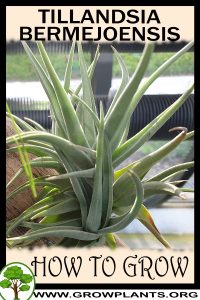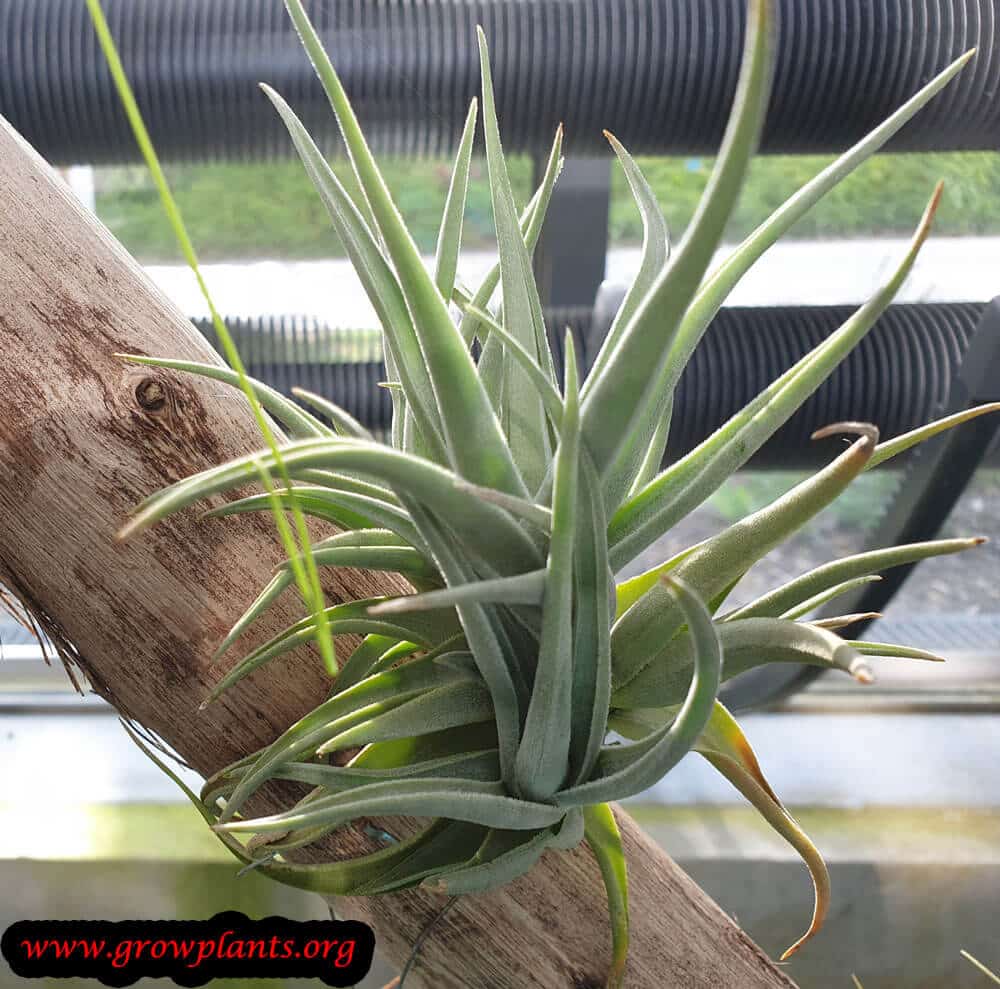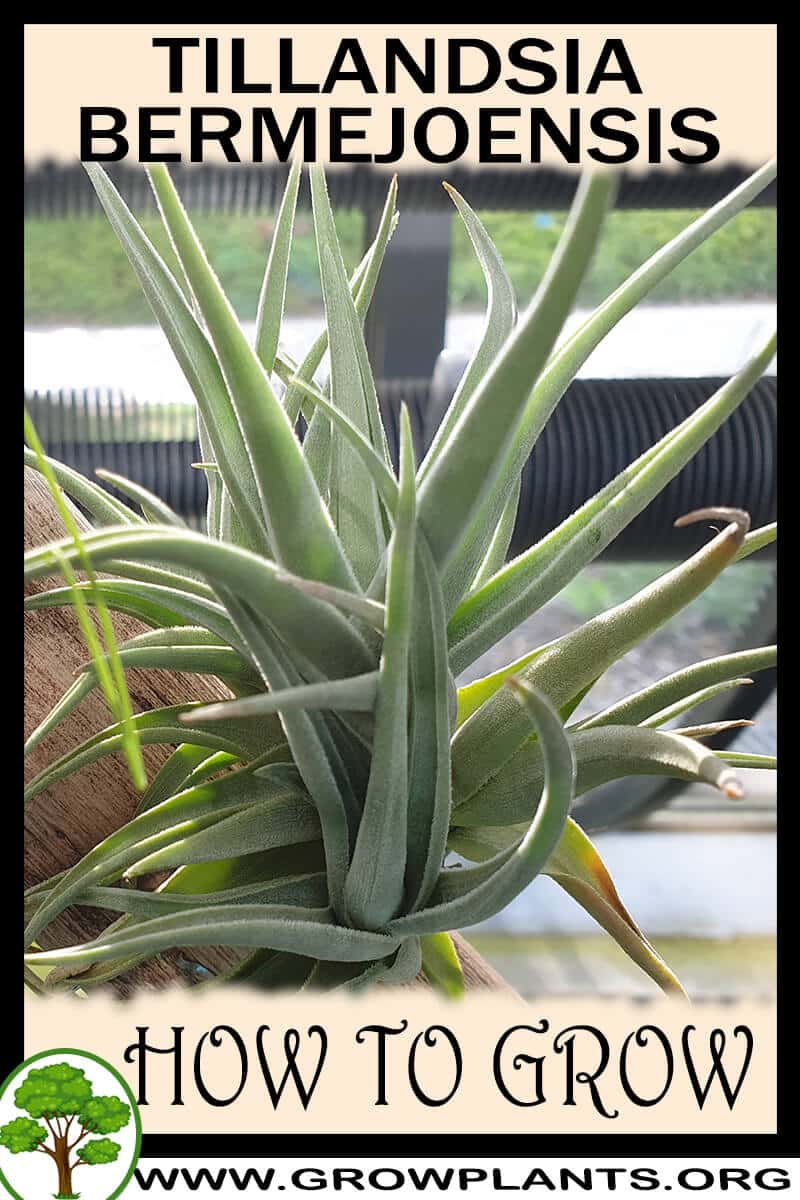
Tillandsia bermejoensis grow and care – epiphytes leaf plant of the genus Tillandsia also known as Air plant or Tillandsia bermejo ensis, Tillandsia bermejoensis perennial evergreen, used as fragrant ornamental plant, can grow in tropic, mediterranean, or subtropics climate or as houseplant and growing in hardiness zone 10b+.
Leaves color green to gray, the leaves grow in rosette structure in elliptic shape and sharp in the edge.
Tillandsia bermejoensis flower
Flower color is purple violet the flowers small grow in clusters.
Bracts color pink, bracts leaves that look like the flowers
Tillandsia bermejoensis for sale – Seeds or Plants to Buy
How to grow Tillandsia bermejoensis growing and care:
Hang on, or sit on location, watering by spray or washing, more than 10C, watering depend on the weather in the summer once a week, in hot location need twice and also depend on the location, humidity, indoor or outdoor, in winter need once a week or every two weeks, in mild winter or not at all in wet winters, more than 3C, soft water (rain water or clean),
How to care:
Fertilizer need to be few times a year and fertilize the plant in spray and in cold winter better not to put fertilizers
What is the best way to start growing?
Plant / Seedling / Seed (it’s not easy to start from seeds / Vegetative reproduction (daughter plants)
How to propagate:
Propagation it’s to separate daughter plants from the mother after few leaves that grow it’s possible to separate but better in the spring, need to treat the same as fully mature plant and when find location try not to move it too much.
Is it necessary to use vegetative reproduction?
Yes in order to get the same cultivars and it’s hard to start from seeds
Difficulties or problems when growing:
Sensitive to hard water
Planting season:
All year, if planted outside better to plant it in the spring to summer
How to plant:
Most of the species need to sit on location without moving and consider to connect them as the plant hang on object like cork
Pests and diseases:
Aphids, fungal, slugs, snails,
Pruning season:
All year
How to prune:
Dead and infected leaves
Size of the plant:
5-15cm, 2-6 inches
Growth speed in optimal condition:
Slow growing
Water requirement:
Small amount of water, spray on the plant or wash the plant, after put water need to put the plant in in a place that it can dry
Light conditions in optimal condition for growing:
Half Shade / Full Shade with light
Is it possible to grow indoor as houseplant?
Yes
How to grow indoors
Choose location with enough light and even with little sun, need to be aware that the plant need to be far away from ventilators, heater and air conditions, possible to grow it in the bathroom, be aware to that because of the high humidity need to use less water.
How to clean:
Because it’s impossible use spray for cleaning it’s destroy the plant, need to wash it under water, after this it’s important to let it dry much more that regular watering.
Growing is also possible in a pot / planter /flowerpot / containers:
Yes
Blooming information
Bloom season:
Spring / Summer
General information about the flower:
Small purple violet flowers small grow in clusters on the base of the bracts.
Scientific name:
Tillandsia bermejoensis
Alternative names: Air plant, Tillandsia bermejo ensis

Categories
| Blooming Seasons |
|
|---|---|
| Flower colors |
|
| Climate |
|
| Leaf color |
|
| Ornamental parts |
|
| Plant growing speed |
|
| Plant life-form |
|
| Plant Uses |
|
| Planting Season |
|
| Plants sun exposure |
|
| Watering plants |
|
| Hardiness zone |
|


